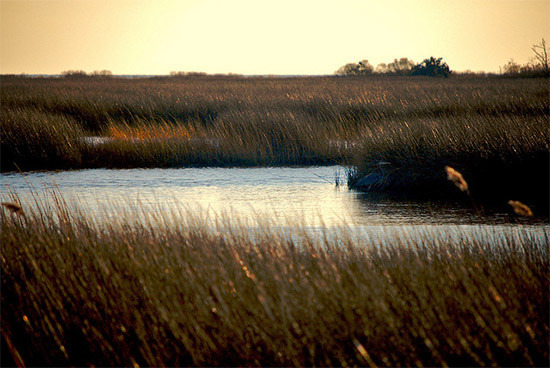Wetland restoration could offset impacts of climate change
Research from Puget Sound confirms coastal wetlands can sequester carbon from the atmosphere.
Restoring tidal wetlands could lower the greenhouse gases in our atmosphere and offset the impacts of climate change, according to research released this month by Restore America’s Estuaries (RAE).

In a report on research conducted in Washington’s Puget Sound, scientists show that the 1,353 hectares—or 3,300+ acres—of wetlands that are planned or under construction in the sound’s Snohomish Estuary will help remove at least 2.55 million tons of carbon dioxide from the atmosphere over the next century. This is equal to the annual emissions of 500,000 average-sized cars.
Carbon dioxide is a greenhouse gas that can trap heat in our atmosphere and contribute to climate change. It is the top greenhouse gas emitted by human activities, but it can be removed from the atmosphere by plants, which need it to create food.
When wetlands take in carbon dioxide, excess carbon is stored in organic-rich soils. When wetlands are drained and developed, however, carbon is released back into the atmosphere. Restoring wetlands can reactivate this carbon sequestration process.
“This report is a call to action,” said Steve Emmett-Mattox, senior director at RAE and co-author of the study, in a media release. “We need to invest more substantially in coastal restoration nationwide and in science to increase our understanding of the climate benefits which accrue from coastal restoration and protection efforts.”
In addition to climate benefits, wetlands can improve water quality, support fisheries and reduce flood risks. But according to a 2013 report, the United States is losing wetlands at a rate of 80,000 acres per year, and the rising seas of climate change threaten to turn wetlands into shallow bays.
Related research from the Smithsonian Environmental Research Center has shown that high levels of carbon dioxide can help wetlands create new soil faster, which could help the habitats move to higher elevations ahead of rising seas.

Comments
There are no comments.
Thank you!
Your comment has been received. Before it can be published, the comment will be reviewed by our team to ensure it adheres with our rules of engagement.
Back to recent stories